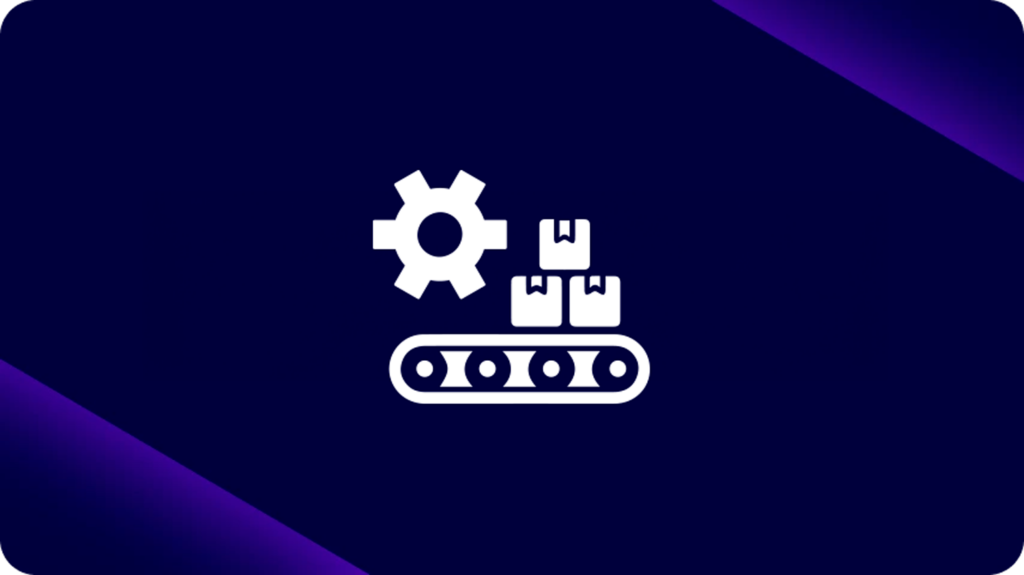May 8, 2025
Hospital inventory management is a constant challenge for healthcare institutions that need to ensure the availability of essential supplies and medicines without compromising the budget or taking up unnecessary physical space.
However, when this equation doesn't add up, the risk is high: the lack of critical materials can put lives at risk, delay procedures and generate operational chaos.
Critical hospital inventory situations are not only inconvenient, as they represent a real risk to patient safety and directly impact the quality of care. On the other hand, excess inventory is also problematic: it increases storage costs, makes it difficult to control product expiration dates, and ties up capital that could be invested in other areas.
In this context, logistics integration in healthcare emerges as a strategic solution. By connecting systems, logistics operators and business intelligence tools, healthcare institutions can automate processes, anticipate disruptions and transform inventory management into a competitive advantage.
>> Book a personalized demo with our team of experts and see how Digibee's iPaaS will bring efficiency to your Healthcare organization.

The challenge of inventory management in healthcare
Hospital inventory management requires precision, agility and predictability. However, many institutions still operate with manual processes or systems that do not communicate with each other.
The clinical area identifies the need for supplies, but this information is often not passed on in a structured way to the purchasing and logistics teams. The result? Delayed reactions, emergency purchases and avoidable risks.
Disconnected systems, such as hospital ERPs that do not integrate directly with suppliers or logistics operators, make the entire process slower and more prone to failure.
Even when a hospital uses robust systems like Tasy, the lack of interoperability between platforms can compromise the flow of information and prevent timely decisions from being made. The consumption of certain supplies can vary drastically, depending on factors such as seasonality, disease outbreaks or a sudden increase in surgeries.
If there is no layer of intelligent integration between systems, the hospital will continue to operate reactively, chasing problems instead of preventing them.
>> Read also: How integration with operators reduces glosses and increases the financial efficiency of hospitals
Why logistics integration is the solution
Logistics integration in health, through iPaaS platforms like Digibee, allows you to create secure, real-time connections between the different systems used in hospital operations.
This includes the Tasy system, suppliers, logistics operators, BI platforms and even IoT devices that monitor material consumption in real time.
Imagine a scenario in which the platform automatically identifies when an input is about to reach a critical level. An alert is triggered for the purchasing team, and a purchase requisition is automatically sent to the supplier, with all the data already validated, such as cost center, quantity required and delivery time. All this with SLA validation and full traceability.
Additionally, the integration enables centralized visibility. The supply team can access a unified dashboard with order status, inventory levels by cost center, delivery SLAs, and automatic alerts.
This type of automation reduces human error, speeds up decisions and ensures that the right inputs are available at the right time.
>> Read also: The integration dilemma and the new path to connecting systems and generating value
Direct benefits of integration
Adopting a logistics integration solution brings concrete and measurable benefits to hospitals. The main benefits include:
1. Reduction in shortages of critical materials and supplies
With automatic alerts and real-time visibility, the team can act before stock runs out, drastically reducing out-of-stock situations.
2. Lower clinical risk due to logistical failures
Lack of materials can delay surgeries, compromise treatments and put patients at risk. Integration reduces this risk by ensuring continuous and controlled supply.
3. Optimization of physical storage space
With more precise control of consumption and automated replacement, the hospital avoids excess materials, freeing up physical space for other purposes.
4. Savings with planned purchases
Emergency purchases are usually more expensive and involve more complex processes. With automation, the hospital can better negotiate and buy based on historical data and projections.
5. Visibility and predictability for decision making
Management dashboards allow you to analyze consumption patterns, identify logistical bottlenecks and anticipate demands. This supports both the operations team and strategic leadership.
>> Read also: How Integration Ensures Data Security in the Healthcare Sector
The importance of interoperability and intelligent use of data
At the heart of effective logistics integration in healthcare is interoperability — the ability of different systems, technologies and applications to exchange data with each other in a fluid, secure and reliable manner.
In hospital environments, where different solutions such as ERPs, medical prescription systems, electronic medical records, purchasing platforms and third-party logistics solutions coexist, this continuous exchange of information is essential to maintain cohesive and responsive operations.
Without interoperability, data such as material consumption, stock inputs and outputs, expiration dates and specific needs of different clinical areas remain siloed. This fragmentation creates blind spots that prevent informed and timely decisions.
For example, a purchasing system may not know that a certain supply is about to run out in the ICU because consumption information is restricted to the clinical system. This disconnect can result in critical delays, increased costs or even risks to patients’ lives.
Furthermore, the intelligent use of data allows hospitals to move from operating reactively to adopting a more proactive approach. proactive and predictive. With integrated data updated in real time, it is possible to identify consumption patterns, predict peaks in demand and adjust stock levels automatically.
This is only possible when data flows freely between systems — and, more importantly, when it is organized and processed in a structured way through a robust integration platform like Digibee.
Another key point is the data quality and governance. With interoperability enabled by an iPaaS solution, it is possible to ensure that the information shared between systems is standardized (e.g., standardized item nomenclature), validated (avoiding typing errors or duplication) and recorded with full traceability.
This contributes not only to operational efficiency, but also to compliance with standards such as LGPD and specific healthcare regulations.
>> Read also: How to solve the main systems integration problems in the healthcare sector
Practical example (use case)
Interoperability, therefore, is not just a technical requirement, but a strategic differentiator that transforms hospital management. It enables faster decisions, leaner operations and, most importantly, safer and more continuous patient care.
Let’s consider a medium-sized hospital that uses the Tasy system as its main ERP. The institution has recurring difficulties with the replenishment of surgical materials and high-cost medications, especially during periods of high demand.
By implementing the Digibee platform, the hospital connects Tasy to its logistics operator and purchasing center. The integration allows:
- Monitor consumption by cost center, in real time, within Tasy.
- Trigger automatic alerts when stock reaches a defined minimum threshold.
- Generate purchase requests automatically, based on pre-established parameters.
- Validate orders with specific business rules, such as budget limit and delivery SLA.
- Monitor, through a visual panel, the status of each order, from request to delivery.
This automation can reduce emergency purchases by 40% in the first quarter of use, improve compliance with delivery deadlines and eliminate cases of surgery suspension due to lack of material. In addition, predictability allows renegotiation of contracts with suppliers and reduction of logistics costs.
>> Read more: Digibee automates laboratory ordering process and integrates with partner hospitals for diagnostic medicine industry leader
How Digibee makes this possible
Digibee is an Integration Platform as a Service (iPaaS) that allows you to connect legacy systems and modern systems with speed, security and low technical effort. This means that even if the hospital works with old applications or complex ERPs like Tasy, Digibee can establish connections without the need for large IT projects.
Connectivity with any system
Digibee has ready-made connectors for hospital ERPs, logistics operators and modern APIs. It is also possible to integrate with your own systems via databases, queues, web services and other protocols.
Governance and traceability by design
The entire information journey is monitored. It is possible to audit the path of each purchase request, validate deadlines and generate performance reports by supplier, type of material or cost center.
Rapid deployment with low effort
Thanks to low-code approach With Digibee’s visual and visual interface, integration flows can be created and adjusted quickly, without relying on long development cycles. This reduces time to ROI and frees up IT staff for more strategic projects.
Low dependence on external suppliers
Because Digibee enables the hospital’s own internal team to create and maintain integrations, the hospital reduces its dependence on technology suppliers and partners. This means greater agility, greater control and lower costs.
Watch a Digibee demo
Hospital inventory management is one of the pillars of efficient and safe healthcare operations. When there is a shortage of supplies, care is compromised; when there is a surplus, waste affects the budget.
Finding this balance requires technology and, above all, integration.
Logistics integration in healthcare, made possible by Digibee, allows systems to be connected, processes to be automated and hospitals to have full visibility and control over their stocks. The result is a safer environment for patients, more efficient for professionals and more financially sustainable for the institution.
If your institution faces challenges with critical hospital inventory, purchasing automation or integration with the Tasy system, it's time to take the next step with Digibee.
>> Book a personalized demo with our team of experts and see how Digibee's iPaaS will bring efficiency to your Healthcare organization.









